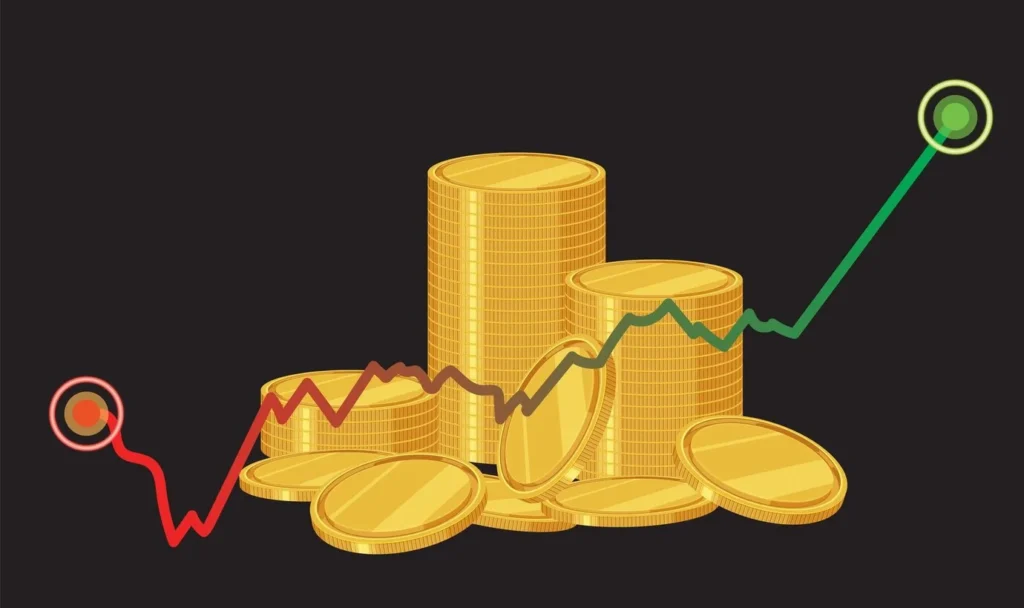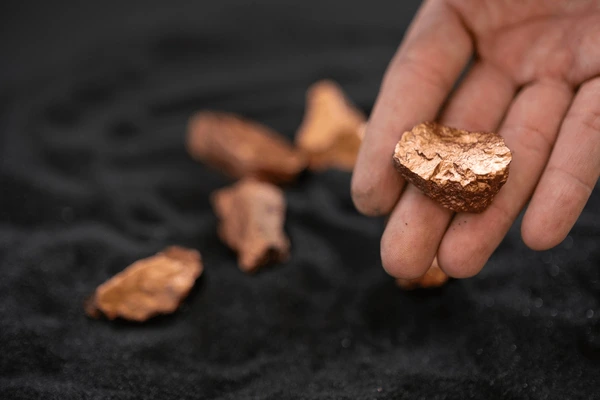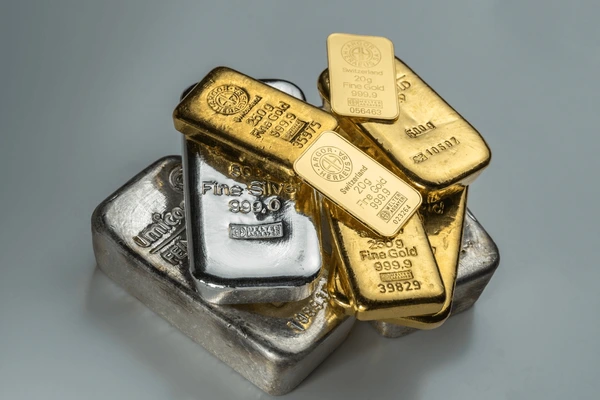Sayanava Sinha Roy
04.06.2025
How Gold Rates Are Calculated in Local Markets
How Gold Rates Are Calculated in local markets explained clearly. Insights from a reputed Gold Buyer help you make informed decisions.
Understanding Gold Pricing: Why It Varies So Often
Gold has always held timeless value—whether as a symbol of prosperity, a traditional asset, or a strategic investment. But one question puzzles most people: Why does the gold rate change daily, and what exactly goes into calculating it in local markets?
If you’ve ever wondered why the price of gold differs from one shop to another or from one city to the next, you’re not alone. The truth is, several nuanced factors play a role in determining the final rate you see on the display boards of local buyers and sellers.
Table of Contents
This blog unpacks the entire pricing puzzle in a simple, easy-to-understand way—equipping you with the right knowledge to get the most value when you buy or sell gold.

The Foundation: International Gold Prices
At the core of any local gold rate lies the international gold price, also known as the spot price. This is the price at which gold is traded globally and is influenced by:
- Global demand and supply
- Economic conditions
- Inflation rates
- Interest rates and currency strength (especially the US dollar)
- International geopolitical events
Prices are quoted in USD per ounce and fluctuate in real-time, reflecting changes in market sentiment and global economics.
Key Factors in Local Gold Rate Calculation
Let’s dig into how gold rates are calculated in local markets—particularly in India, where tradition and investment go hand in hand.
1. Currency Exchange Rates
Local rates start with the conversion of international prices from USD to INR. Since gold is globally traded in dollars, the rupee-dollar exchange rate plays a vital role. If the rupee weakens against the dollar, gold prices rise in the Indian market, even if the international price remains unchanged.
2. Import Duties and Taxes
India imports most of its gold. Hence, local rates include:
- Basic Customs Duty (BCD)
- Agriculture Infrastructure and Development Cess (AIDC)
- Goods and Services Tax (GST)
These duties can add up to 15% or more to the base price, significantly affecting what consumers end up paying.
3. Hallmarking and Purity Standards
The Bureau of Indian Standards (BIS) hallmarking ensures gold purity. Rates vary between:
- 24K (99.9% pure)
- 22K (91.6% pure)
- 18K and others
Sellers adjust the rate based on the karat value and purity level after quality tests.
4. Local Market Premiums
Local buyers or refiners add a premium, depending on:
- Local demand and supply dynamics
- Brand reputation and certification
- Transportation and handling charges
- Seasonal trends (festivals, weddings)
This is why gold may cost slightly more in one city than another—even on the same day.
Hidden Yet Vital: Making Charges and Seller Margins
If you’re purchasing jewelry, your final bill will include making charges, often 8–20% depending on the craftsmanship. Some also add wastage charges. These aren’t part of the gold rate per se but affect the total cost significantly.
When selling, dealers deduct their margin based on:
- Daily spot rates
- Weight (in grams)
- Purity and wear-and-tear
- Refining cost if applicable
Knowing how gold rates are calculated gives you negotiation power.

Real-Life Example of Rate Calculation
Let’s say the global spot price is $2,300/oz. At an exchange rate of ₹83/USD, and after converting and adjusting for import duties and taxes, the local price per gram for 24K gold might be around:
(2300 x 83) / 31.1 grams = ₹6139/g
(After adding taxes and duties, approx ₹6300–₹6450/g retail price)
This is the base from which jewelers or gold buyers derive their quotes.
The Role of Refiners and Trusted Buyers
Behind every transparent transaction is a reputable gold buyer or refiner. These professionals use accurate methods like XRF spectrometry to determine gold purity, ensuring fair valuations.
One such recognized name in the industry, especially in eastern India, is a team known for consistent and honest pricing practices backed by expert analysis and refining capabilities. Their approach reflects the core values of accuracy, customer trust, and regulatory compliance.
How Gold Rates Are Calculated Locally: What Sellers Must Know
When you’re selling old jewelry or scrap gold, knowing the gold rate isn’t enough. You also need to understand:
- Whether the buyer uses scientific purity tests
- If they match rates to the IBJA (Indian Bullion and Jewellers Association) daily prices
- Whether there’s a refining or handling deduction
- How quickly the payment is made (instant payments vs delays)
With this awareness, you can avoid underpricing traps and make informed financial decisions.
Quick Checklist: Smart Tips Before Selling Your Gold
- Always check the daily IBJA rates
- Know your gold’s purity level (get it tested)
- Weigh your gold separately without stones
- Compare quotes from 2-3 reputed buyers
- Ask if the weighing scale is certified and visible
- Confirm no hidden deductions or melting loss

Most Asked FAQs
Q1: Why does the gold price change every day?
The price reflects global market dynamics, currency exchange rates, and local taxes. It’s a real-time indicator of market sentiment.
Q2: Is the gold rate the same in all cities?
No, local taxes, transportation, and market demand cause slight variations across cities.
Q3: How do I know if a gold buyer is giving me the correct rate?
Ask them to show the day’s gold rate from a credible source like IBJA or MCX. Also, ensure they weigh and test your gold transparently.
Q4: What deductions are made while selling gold?
Deductions can include refining charges, wastage (if any), and dealer margins. Transparent buyers declare all charges upfront.
Q5: Should I sell gold at a pawn shop or a certified refiner?
Certified refiners and professional gold buyers generally offer better valuations due to precise testing and minimal deductions.
Knowledge Is Your Greatest Asset
Understanding how gold rates are calculated is not just financial literacy—it’s your defense against undervaluation, vague charges, and misinformation. When you approach gold buyers or refiners with this knowledge, you’re not just selling a piece of metal; you’re engaging in a well-informed, transparent transaction.
And while many options exist for selling your gold, always prioritize trust, clarity, and scientific evaluation methods. Brands that focus on accurate pricing and customer trust, like top-tier refiners operating in major cities, can make all the difference between a good deal and a regrettable one.
Popular Post



